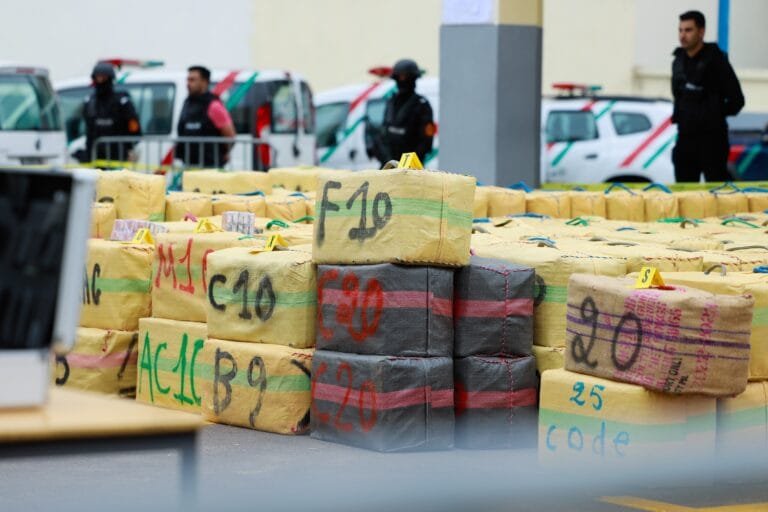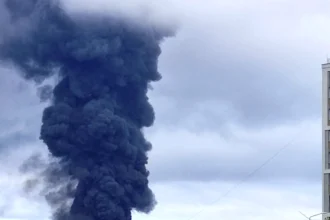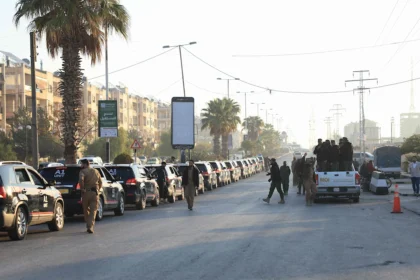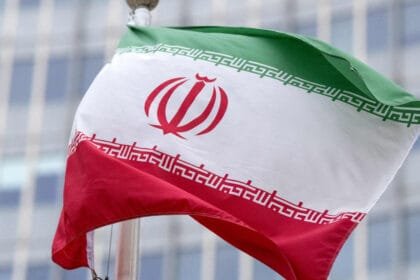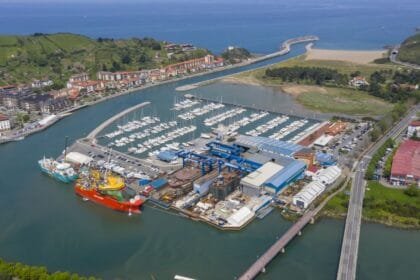Madrid, Spain – Spanish authorities revealed the dismantling of one of the largest cross-border drug trafficking networks,
in a large-scale security operation targeting gangs operating between Morocco and Spain.
This comes as part of escalating efforts to combat organized crime fueled by the cocaine and cannabis trade.
Spanish police said in a statement that they carried out coordinated raids in the regions of Andalusia and Catalonia.
secret rooms for drug smuggling
Resulted in the seizure of large quantities of hashish, cocaine, cash and weapons.
In addition, cars and trucks equipped with secret rooms for drug smuggling were confiscated.
A number of suspects were also arrested on suspicion of being part of
a smuggling network linked to international gangs extending from Morocco to Latin America.
According to investigations, the network was using southern ports
such as Algeciras as a major transit point for smuggling drugs to Europe.
Based on advanced technologies to conceal shipments inside containers and commercial goods.
A major gateway for drug flows to Europe
Spain, due to its geographical location and proximity to the Moroccan coast,
is considered a major gateway for the flow of drugs into the European continent.
Security reports indicate that about 70% of the hashish entering Europe passes through Spanish territory.
Meanwhile, the quantities of cocaine seized have increased in recent years, reaching record levels.
This operation comes in light of the increasing activity of international cartels and their penetration into some Spanish coastal cities.
This prompted the government to announce a new security plan to curb the influence of smuggling networks,
which have become a threat to internal stability and the local economy.
Authorities’ efforts and challenges
Faced with this reality, Madrid has increased the level of international cooperation and technology used in the fight.
Advanced drones, container inspection cameras, and intelligent analytics are now being used to track suspicious shipments.
The challenges remain enormous, with a German report indicating
that drug-related crimes have doubled in some Spanish regions over the past fifteen years.
Why is it important?
This escalation represents more than just the arrest of drug traffickers,
but rather an existential confrontation against global criminal networks that use Spain as a major transit point to European markets.
Spanish authorities still face a difficult task in closing the remaining loopholes
and preventing coastal areas from becoming logistical hubs for organized crime.






